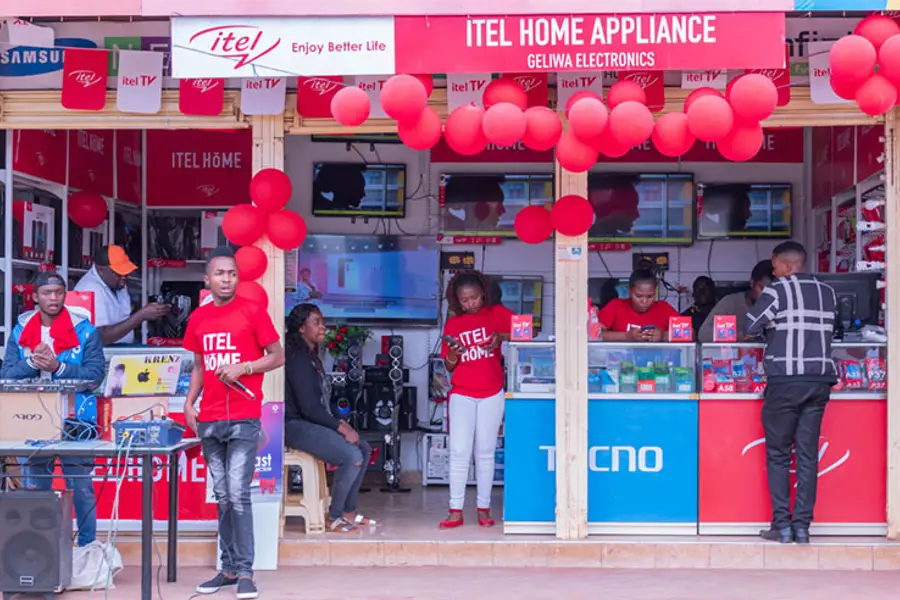Stumbling Transsion hopes global investors overlook its fading fortunes

The budget smartphone maker is reportedly considering a Hong Kong IPO to complement its existing listing on Shanghai’s STAR Market
Key Takeaways:
- Shanghai-listed Transsion is reportedly weighing a second IPO in Hong Kong that could raise up to $1 billion
- The budget smartphone maker rose to prominence by tapping the underserved African market, but its revenue began to contract last year as it faces growing competition
By Doug Young
When it comes to fundraising, timing is everything. But budget cellphone maker Shenzhen Transsion Holdings Co. Ltd. (688036.SH) apparently hasn’t learned that lesson, based on the timing of new reports that it’s considering a second listing in Hong Kong to complement its existing listing on Shanghai’s STAR Market.
The company is one of China’s least-known cellphone superstars due to its focus on budget models under the Tecno, Infinix and Itel brands that typically sell for $100 to $200. The company quietly built up a dominant presence in Africa, before bursting onto the global leaderboard in 2023 when it became one of the world’s five biggest manufacturers with its expansion into other developing markets.
But lately Transsion has fallen on hard times as China’s other cellphone makers start to challenge it in Africa, and it stumbles in some of its newer markets. Making matters worse, the company was sued by global telecoms chip giant Qualcomm last year, and its longtime CFO also disappeared briefly last September under worrisome circumstances.
Such conditions hardly make the company look like a strong candidate for a Hong Kong IPO right now. But that’s exactly what it appears to be doing, based on a Bloomberg report last week that the company is talking with advisors about a potential Hong Kong listing that could raise about $1 billion.
While its own circumstances hardly look encouraging, Transsion is undoubtedly encouraged by a red-hot Hong Kong IPO market that has been especially kind lately to Chinese companies seeking second listings to complement existing ones on domestic A-share markets in Shanghai and Shenzhen. That group is led by electric vehicle (EV) battery maker CATL, which was Hong Kong’s biggest IPO this year when it raised more than $4 billion in May.
Like CATL, Transsion was a strong growth story at the time of its Shanghai listing in 2019, banking on its domination of an African market neglected by many of its peers. The company’s stock is currently more than double its IPO price, though at one point it was up as much as six times, as investors applauded its rapid rise.
The stock has been a relative underperformer more recently, down 21% this year, after its revenue began to contract in the second half of 2024. The stock now trades at a price-to-earnings (P/E) ratio of 19, which is just a third of the 54 for Xiaomi (1810.HK), its closest publicly traded rival, whose shares have soared lately on excitement about its entry to the EV market. Industry giant Apple (AAPL.US) trades at a more reasonable ratio of 33, which is still nearly double Transsion’s figure.
Smartphone makers in general are coming under pressure due to stiff competition and slowing growth in the global market. Transsion seems especially vulnerable due to its heavy reliance on low-end models that typically carry low margins. Its equally heavy reliance on Africa is also another weak spot, as Xiaomi and Honor, a brand that was previously part of Huawei, move aggressively into the market.
Contracting revenue
Transsion’s revenue was growing rapidly as recently as the first half of last year, when it rose 38% year-on-year to 34.6 billion yuan ($4.82 billion). But then the figure suddenly started contracting in the second half of the year, falling 8.3% during that six-month period. The contraction accelerated in the first quarter of this year, when the company reported its revenue tumbled 25.5% to 13 billion yuan from 17.4 billion yuan a year earlier.
Its profit tanked by an even larger 70% year-on-year in the first quarter to 497 million yuan, as its gross margin slipped to 19.3% from 21.4% a year earlier. By comparison, Xiaomi’s margin was a higher 22.8% in the first quarter, while Apple’s product gross margin was even higher at 35.9%.
Transsion’s focus on the bottom end of the market is undoubtedly responsible for its lower margins. But another factor is probably the Qualcomm lawsuit, which the U.S. chip giant brought against Transsion in July last year. Media reports indicated that lawsuit was settled in January, meaning Transsion is probably paying some additional royalties to Qualcomm as part of that agreement, which is driving up its costs and eroding its margins.
A look at trends in the company’s various major markets also shows erosion across the board. The company’s shipments in Africa fell 5% in the first quarter, as its share of the market dropped to 47% from 52% a year earlier, ending seven straight quarters of growth, according to Canalys. Its shipments fell by an even bigger 20% in Southeast Asia during the quarter, dropping its market share to 18% from 15% a year earlier. Things were even worse in the Middle East, where its market share dropped to 16% from 22% a year earlier as its shipments tumbled 30%.
IDC analyst Will Wong said intense competition and rising RAM prices were both factors undercutting Transsion’s performance, and noted the company is moving away from a strategy of “growth at any cost” to pursue models with higher profit margins. He added he expects the company’s situation to improve in the second half of the year, which could potentially provide some more positive momentum if it proceeds with a Hong Kong IPO.
Last but not least, the brief disappearance of the company’s longtime CFO for a couple of weeks last September was also a slight cause for concern. The quick resurfacing of Xiao Yonghui was a relief for the company, leading many to suspect he was being questioned in relation to someone else suspected of a crime. Still, it’s never good to have one of your top executives go in cognito for any extended period.
At the end of the day, a Hong Kong IPO by Transsion would offer investors a new entry to China’s cellphone manufacturing machine, since right now most major players except for Xiaomi are still private. But it’s not exactly the best choice due to its low-end focus and eroding sales and profits. That means the company might have to price its shares at a discount to their Shanghai-listed counterparts if it hopes to raise $1 billion.
To subscribe to Bamboo Works free weekly newsletter, click here





